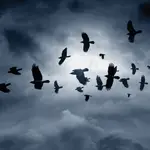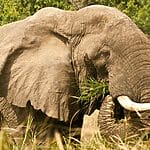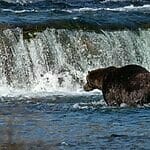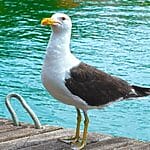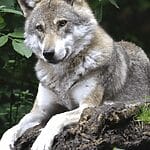Becoming a Wildlife Conservation Officer is a very rewarding career path, but it’s also one that comes with a lot of responsibilities.
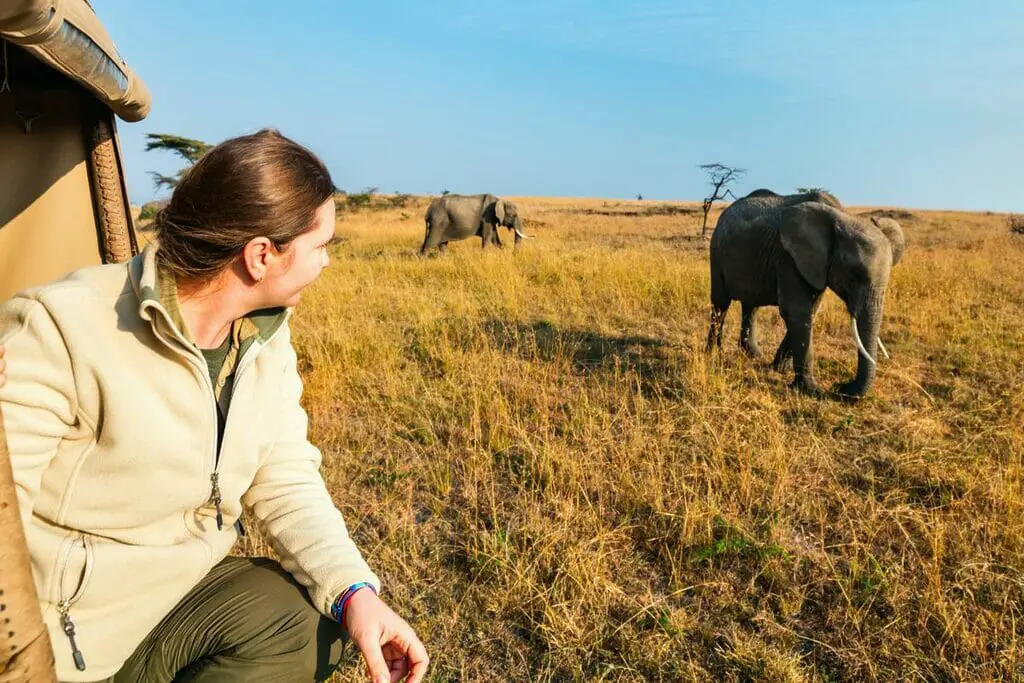
If you’re considering studying and training to be a Wildlife Conservation Officer, you should familiarize yourself with the responsibilities that will be expected of you beforehand so that nothing comes as a surprise or a shock.
Although being a Wildlife Conservation Officer may be your dream career, you’ll likely experience some pressure from the responsibilities, so it’s a good idea to prepare yourself mentally as you progress toward your career goal.
The Responsibilities Of A Wildlife Conservation Officer
1. Supervise Territory
Usually, Wildlife Conservation Officers have designated patrol areas.
These may change on a regular or irregular basis depending on where you are located and what your specific job title entails, but basically, a lot of your job will involve patrolling your designated area to make sure all is as it should be.
A lot of this work can feel repetitive and monotonous, but it’s the most important part of the job because unless you’re keeping a watchful eye on your assigned territory, you won’t be able to step in and carry out any of the additional responsibilities of a Wildlife Conservation Officer.
You might need to travel from park to park to carry out your duties, but you’ll usually be able to use an approved vehicle to do so.
Using a vehicle will make sure you can be quick to respond in case of illegal activity or forest fires. You may also be able to use watchtowers to look out for these depending on where you work.
2. Carry Out Legal Checks
When people do come in and out of your assigned patrol area, it will be your responsibility as a Wildlife Conservation (see also: What Is The Goal Of Wildlife Conservation?)Officer to carry out all of the necessary checks.
Hunting may or may not be allowed in the area under certain conditions. If hunting is not allowed, you will need to make sure that nobody enters the perimeter with weapons.
If hunting is allowed, you will still need to check that any weapons are regulated and licensed. Licensed hunting weapons should have the proper tags, so you’ll need to check these.
In the case of fishing, you may be required to check boats for seaworthiness. If the boat is not seaworthy, you will need to turn them away since allowing them to fish with a vessel that isn’t fit for purpose is a violation of the law.
Assuming that people are allowed to harvest wild game in your area, you’ll need to check any game that is harvested.
The basic checks are for sex and age, but you may also need to test for certain diseases at times depending on the animal in question.
You will, of course, have the correct equipment and the proper training to do this.
3. Investigate Accidents And Incidents
In conservation areas where hunting is permitted, accidents sometimes happen. If an accident happens during your shift, you will be called to the scene and you will be required to investigate.
In many cases Wildlife Conservation Officers are given the same legal permissions as police officers, so you’ll have the necessary training to fill out a report and take a person into custody if you find that they have acted irresponsibly.
An example of this might be if someone were hunting or fishing under the influence of alcohol or drugs.
4. Issue Citations And Warrants
Assuming that you do discover a person in your designated area not complying with the law, your responsibility as a Wildlife Conservation Officer will be to issue that person with either a citation or a warrant.
Again, Wildlife Conservation (se also: African Wildlife Conservation 101)Officers hold some of the same legal powers as police officers, so as a Wildlife Conservation Officer, you can carry out an arrest if somebody in your park or plot of land has violated the law.
This could involve any number of offenses, from hunting or fishing under the influence to illegal poaching.
5. Search And Rescue
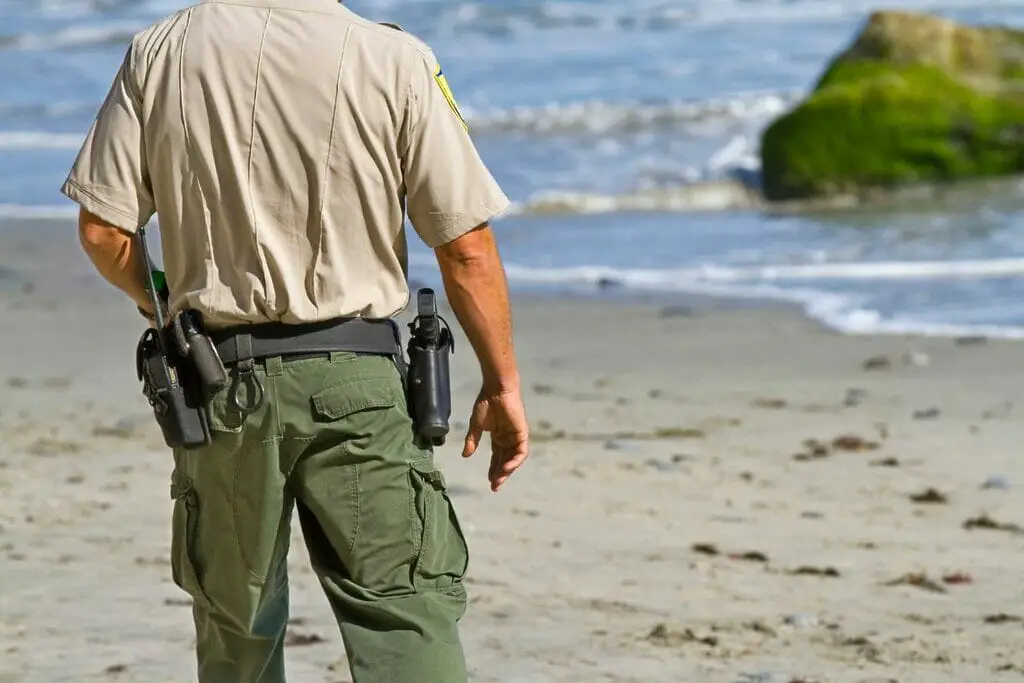
Some wildlife parks are extremely large, which makes it easy for people to get lost. Additionally, depending on the terrain, people can easily find themselves in dangerous situations, especially if they don’t stick to designated trails.
If someone goes missing in your allocated area, you may be required to participate in search and rescue missions.
This will usually involve taking a description of the missing person and using a suitable vehicle to search for them.
Depending on the circumstances, you may also need to involve the police or paramedics in the search.
6. Wildlife Study
Studying wildlife is key to conservation efforts, (see also: 5 Challenges Facing Wildlife Conservation Efforts In Ethiopia)and as a Wildlife Conservation Officer, you are best placed to help with these wildlife studies.
The study of wildlife can include many things from studying the biodiversity of a habitat to surveying animal populations in your area. You may be required to record your results officially.
If this is going to be part of your job description, you’ll usually need to have some training beforehand or even a degree in a relevant science.
7. Poacher Baiting
This is one of the most dangerous aspects of a Wildlife Conservation Officer’s job, and it’s a reason applicants should carefully consider whether this role is right for them.
In order to catch poachers, many national parks will require Wildlife Conservation Officers to set traps to bait the poachers and then carry out an arrest.
As you can imagine, this sometimes leads to violent escalations, so if you’re going to be a Wildlife Conservation Officer, you need to be trained in self-defense and be prepared for the risk.
Frequently Asked Questions
What Careers Are Similar To Being A Wildlife Conservation Officer?
Being a Wildlife Conservation Officer comes with a level of risk that not all animal lovers are prepared to undertake.
If being a Wildlife Conservation (see also: All The Economic Benefits Of Wildlife Conservation Listed)Officer isn’t for you, you could also become a wildlife biologist or a zoologist. Veterinary technician work might also be a suitable alternative for you.
Do Wildlife Conservation Officers Get Paid Well?
In the United States, the average Wildlife Conservation Officer earns around $44,700 per year. The average pay increases to over $58,000 for state government jobs.
Do I Need A Degree To Become A Wildlife Conservation Officer?
Yes, you normally need at least an associate’s degree to become a Wildlife Conservation (see also: All You Need To Know About The North American Wildlife Model Of Conservation)Officer. The degree could be in environmental science, wildlife management, or wildlife law enforcement.
Depending on the specific job you apply for, you may need other qualifications, but these are the degrees that most job postings for Wildlife Conservation Officers will accept.
Final Thoughts
Wildlife Conservation Officers have a lot of responsibilities. Beyond patrolling your designated area, if you become a Wildlife Conservation Officer, you will be expected to carry out checks on people entering and leaving the perimeter and give citations or warrants if necessary.
You may also be expected to participate in search and rescue missions, help to study wildlife, and maybe even help to catch poachers through the setting of traps.
Working as a Wildlife Conservation (see also: How The Florida Fish And Wildlife Conservation Commission Works)Officer is not for the faint hearted, but if you’re passionate about conservation, enjoy hard work, and don’t mind an element of risk, it might be the career for you.

